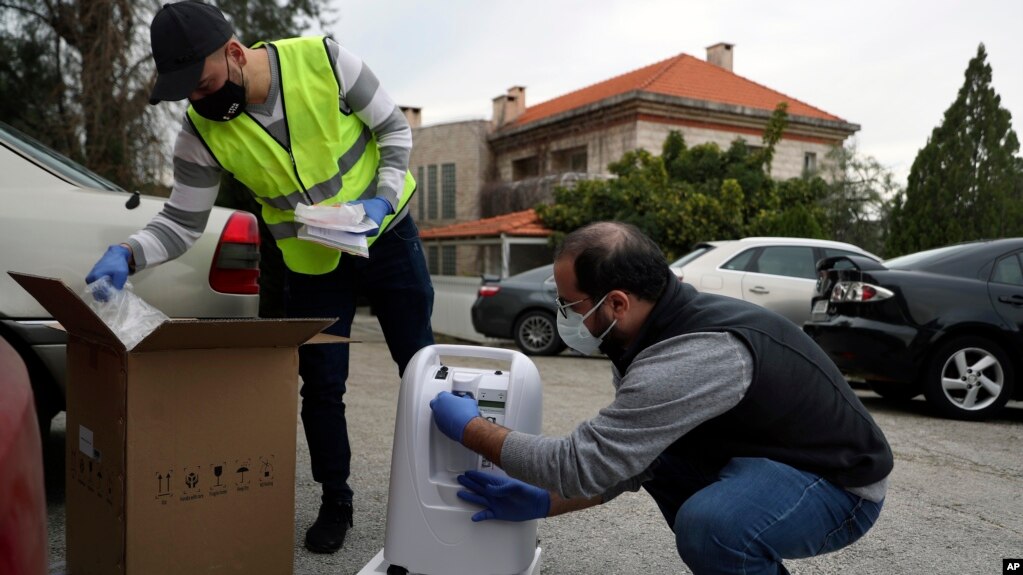
by learningenglish.voanews.com — Recently in Beirut, a small group of people cleaned oxygen machines to send to those in need. The move was the latest in a series of activities by a Lebanese group trying to serve the public during the country’s health and economic crises. Melissa Fathallah is one of the founders of Baytna Baytak, which in Arabic means Our Home is Your Home. “No one is exempt from COVID. Nobody. Nobody has super-power immunity,” she told the Associated Press. Immunity means the power to keep yourself from being infected by a disease. Raising more than $27,000, the group has placed 48 oxygen machines with those in need across the country.
Baytna Baytak began at the start of the COVID-19 pandemic with a very different project. The group found homes for medical workers who were worried about bringing the virus to their families. During Lebanon’s first lockdown in March, the group housed 750 workers in different places. Chloe Ghosh works at a government hospital in Beirut. She has been living in housing provided by the group since the start of the pandemic. She was worried about putting her family at risk. “If I got COVID or anyone my age got COVID, we could survive,” Ghosh said. “But our families, no.” The first place Ghosh stayed was damaged when another disaster hit Beirut, the August 4 explosion at the city’s port. The blast killed more than 200 people, injured 6,000 others and destroyed thousands of homes. Ghosh was not harmed. She moved to another place provided by Baytna Baytak. She now shares a four-bedroom apartment with three other medical workers who work in different hospitals around the city.
The apartment was donated to Baytna Baytak by a wealthy individual who wanted to help those risking their lives to fight the virus. The same person donated several other properties around Beirut for the same purpose. After the port explosion, Baytna Baytak moved to increase its efforts to help those whose homes had been damaged. It placed them in temporary housing while it helped raise money to fix their homes. Within 24 hours of the call for housing, six apartments were donated. Baytna Baytak grew out of a need for services for front-line workers in Lebanon, Fathallah said. “As far as the government is concerned, we don’t have a government. Let’s just get that out of the way,” she said. Lebanon’s health sector has faced difficulties in the past and the problems got worse after the explosion.
Doctors are working many long days in place of health workers infected with the virus. More than 2,300 Lebanese health care workers have been infected since February, the country’s Order of Physicians reports. Lebanon has more than 14,000 medical doctors and 17,000 nurses, but many doctors have left the country, partly because of an economic crisis that began before the pandemic. After the explosion, Lebanon saw a large increase in COVID-19 infections that only worsened by the end of 2020. This forced Baytna Baytak to put some of its work on hold. The number of donors also decreased.
Still, the group has continued to work through new virus-related restrictions that started in mid-January. Even while giving out oxygen machines, the team was getting fined for breaking curfew. Fathallah has no plans to stop her work. “We took it upon ourselves because of the greater good, because of the bigger picture because of the country and the citizens. We took it upon ourselves,” she said. I’m John Russell. Fay Abulgasim reported on this story for the Associated Press. John Russell adapted it for Learning English. Bryan Lynn was the editor.



